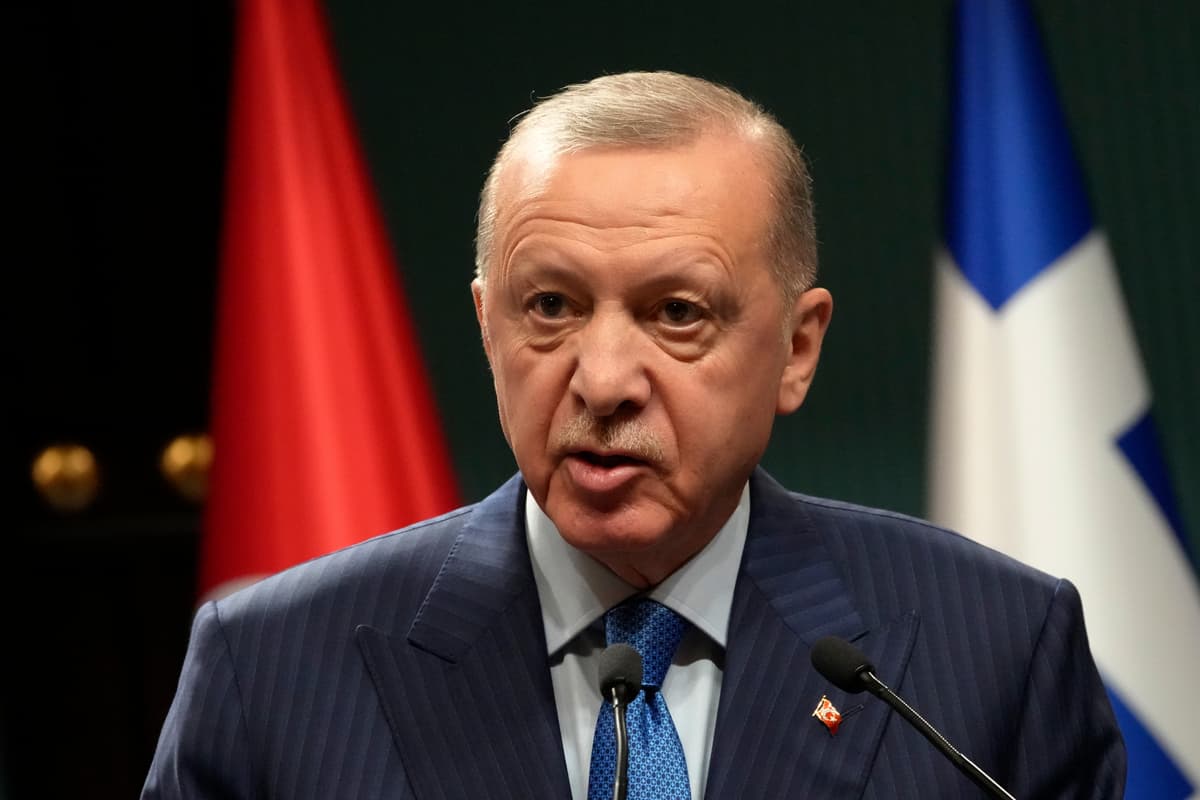If Turkey’s Erdogan Launches Attack Against Syria-Based Kurds, He Might Also Be Attacking a NATO Ally, America
A 900-troop American force stationed in northeastern Syria to ensure that ISIS remains defeated has been embedded with the Kurdish-dominated Syrian Democratic Forces.

Will President Erdogan of Turkey, a member of the North Atlantic Treaty Organization, trigger a battle with Syria-based troops backed by another member of the alliance, America?
The question is pertinent, as a Turkish-backed Sunni militia, the Syrian National Army, is preparing an assault against Kurds fighting under the Syrian Democratic Forces banner and supported by America. The NATO-on-NATO scenario could materialize if Turkish troops, now amassed along the Syrian border, join their allies to assail Kurds that Ankara considers to be terrorists.
A 900-troop American force stationed in northeastern Syria to ensure that ISIS remains defeated has been embedded with the Kurdish-dominated SDF. “We’ve worked alongside the SDF for some time,” the American secretary of defense, Lloyd Austin, told reporters in Japan last week. “We have a good relationship with them, and I think it will remain.”
General Austin, though, represents an outgoing administration with little sway over world events. Feeling threatened, the Kurds in Syria are instead turning their eyes to President-elect Trump, who seems uninterested in Syria. “This is not our fight. Let it play out. Do not get involved,” Trump wrote on X shortly after anti-regime Syrians captured Damascus.
In a press conference Monday, Trump added that “Turkey did an unfriendly takeover” of Syria, and did it “without a lot of lives being lost.” Mr. Erdogan, he said, is a “smart guy” who is “very tough.” As of yet, the president-elect has refrained from offering hints about a crucial decision he would likely need to make quickly: whether to keep the American troops in Syria.
For the Syrian Kurds, who are guarding prison camps that house thousands of ISIS fighters, the question could be even more urgent than Trump’s post-January 20 decision. They fear that Mr. Erdogan and the Syrian Islamists he backs will attack them while President Biden is still in power.
Turkey will try to “establish de facto control over our land before you take office, forcing you to engage with them as rulers of our territory,” an official in the Kurdish civilian government in Syria, Ilham Ahmed, wrote to Trump, the Wall Street Journal reported Tuesday. “If Turkey proceeds with its invasion, the consequences will be catastrophic.”
Kurds are concerned that Ankara will attempt to end the de-facto autonomy they have established in Syria. “From across the border, we can already see Turkish forces amassing, and our civilians live under the constant fear of imminent death and destruction,” Ms. Ahmed wrote.
American-backed attempts to broker a cease-fire between the Turkish-backed forces and the Kurdish fighters who control the Manbij and Kobani regions collapsed on Monday. That happened “due to Turkey’s approach in dealing with the mediation efforts and its evasion,” an SDF spokesman, Farhad Shami, said in a statement.
Trump indicated that Turkey was the main force behind recent events in Syria. The Turks “wanted it for thousands of years, and he got it,” Trump said Monday, referring to Mr. Erdogan. Some in the region, though, are skeptical that Ankara was driving the attack.
“Erdogan gave the rebels a green light to take Aleppo,” a man with ties to the Syrian Kurds, who asked not to be identified, told the Sun. “He didn’t realize, though, that Assad’s army would fold so quickly, and that the rebels would move all the way to Damascus.” The groups led by Abu-Mohamed al-Jolani, he added, do not always obey Ankara: “Many Arabs consider Turkey to be a foreign power.”
Mr. Erdogan, in a meeting at Ankara Tuesday with the European Union’s commissioner, Ursula von der Leyen, said that everyone agrees on the need for an “inclusive administration in Syria” — except for “terrorists.” Turkey includes ISIS in that category, but also the Syrian Kurds.
The ISIS leader in Syria, Abu Bakr al-Baghdadi, was killed in October 2019 under order from President Trump, who has long said it was his administration that defeated the most menacing terror group of the time. That victory, though, was also largely owed to Kurdish troops who served on the battle’s front lines, losing hundreds of fighters.
Now, the Kurds are endangered by a growing threat from jihadist militias whose ideology is not much different from that of ISIS. Mr. Erdogan’s determination to quash the Kurdish fighting forces he considers to be terrorists, along with the zealotry of Turkey’s Islamist allies, could lead to a Syrian bloodbath. Americans stationed in Syria might quickly get caught in the crossfire.
Mr. Erdogan is unlikely to listen to Mr. Biden’s warning against his planned moves in northeastern Syria. Although Trump has vowed to stay out of Syria, he might soon need to pick up the phone to Ankara to prevent a crisis that could threaten America’s most reliable Syrian allies, and risk the cohesion of NATO.

